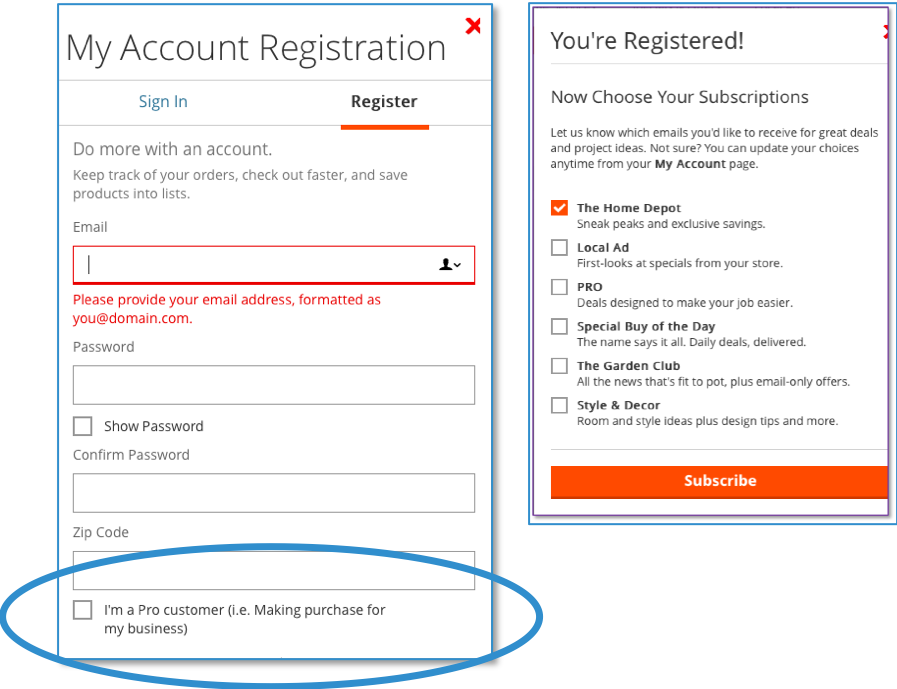By Wayne Marks, President, Hansa|GCR
Marketers confront a real paradox when dealing with business customers, and this paradox is often not realized or addressed in approaches to understanding what drives corporate decisions. The paradox is: Am I selling to a person or a company? The answer is “both.”
At a basic level, interactions between companies are simply interactions between people. That may sound silly, but consider its implications. Buyers who work in companies don’t change their bodies when they leave work and then they go home and become purchasers of consumer goods and services. As consumers, they walk around as a package of thoughts, feelings, and attitudes, along with a history of experiences in buying goods and services and an ever-evolving set of expectations. None of this goes away when they go to work the next day and dress up in their corporate buyer persona.
The notion that there is a hard and fast difference between consumer experiences and B2B experiences would not hold water. Buyers, decision makers, influencers, and other stakeholders in corporations that marketers want to communicate to and build relationships with will bring some or all of their consumer expectations to the workplace -– they will look to vendors they can trust, just like they would want to find local repairmen they could trust. They have expectations about what really good service looks like at Nordstrom’s and they will expect similar service from their preferred corporate suppliers. They bring their personal values about what is right and wrong and good and bad and how a retailer might make good on a defective product. They will apply similar values to their vendors’ products at work.
We have found this to be the case in researching issues like the role of sustainability and its associated personal values in corporate decision-making. The degree to which people personally regard “green” as a personal value makes a difference in the weight they place on greener product purchases for their corporation. This is illustrated in the following exhibit:
In the exhibit, CVI is a corporate values index, while PVI is a personal values index. Note that when corporate values about “greener technology” are relatively low, yet personal values are relatively high, the buyer will more likely buy greener products. When personal values and corporate values are relatively high, there is an even greater propensity to purchase greener products.
But here’s more of the paradox. While corporate decision makers and buyers bring their personal consumer experiences to work, and arguably aren’t a different person than when they were at home, at the same time, they could well be a different person. That distinction between consumer experiences and B2B experiences might indeed hold some water.
Individuals within corporations bring their own values and expectations, but now those individual characteristics are filtered in the business environment. Corporate polices and processes come to play. Group-developed decision criteria and review processes exert their roles. The boss may simply decide or dictate a decision that others then have to live by. Many other factors rear their head and reinforce or possibly conflict with these individual values. Indeed, the corporation can be said to have its own persona, or culture, if you prefer. So now we have really two people in one –- the individual decision maker and the corporate “being,” persona, or culture.
So what does this mean for marketers and market researchers? Well, let’s assume that we want to determine the factors that drive buying decisions in a corporate environment. Who is the buyer? In one sense, the buyer is an individual, or team, as it may be. But in another sense the buyer is yet another person with its own self -- the corporation. Most approaches to surveying corporate decision makers gain the individual respondent’s view. That’s well and good. Maybe the research survey will try to gain feedback from a few influencers beyond the target buyer or buyers, believing that once information is collected from these few individual views, there now is a basis to discern what drives decisions in the organization.
But, what about this idea of the corporation as a separate identity? Did you believe the logic that a corporation can be viewed as having its own persona? Just think of your own experience with companies that you might characterize as arrogant, maverick, cool, or whatever. If corporations don’t have their own persona, we sure go to a lot of wasted verbal trouble in personifying them.
When do researchers ever survey this “corporate” persona when they send surveys out? It is hard to send an email to the ABC corporation culture and expect it to respond, isn’t it? OK, so we can talk about a corporation as a person, but we can’t treat it as a person responding to a survey. Maybe not, but could we treat it as something the buyers and influencers within the organization can characterize?
When consulting to organizations on their cultures, I will often engage in conversations with leaders and others about topics like, “What is it like to work here? How do decisions get made? What are the unwritten rules for making decisions? What’s valued? If this place were a person, how would you describe it?” All of these questions treat the organization implicitly as a definable culture, if not a personified entity. But, we as researchers seem to bypass these types of questions for ones like “To what degree is price a factor, how important is product performance, how responsive is your account executive, or did customer service resolve your issue to your satisfaction?” We typically don’t ask questions about the corporate culture and its influence on decisions, the unwritten values and rules, the implicit understandings about what type of vendor is preferred (e.g., the safe and established choice or the upstart different choice), or what the “rest of the organization” considers a good buying decision.
We at Hansa have written about the critical importance of “context” in customer decisions and how it needs to be considered more overtly in research methods. This issue of the corporation as a person, to be understood and researched along with the individual corporate respondents, is a variation on the context point. It’s a big deal. It’s one thing to know the individual, and that’s important, but it’s another thing to know the corporate culture as a person, too. It is not just what the respondent thinks; it’s also what the corporate culture “thinks.”
We believe that there is a need to rethink research in the B2B world. We have seen too many companies struggle with their customer satisfaction surveys and their research on purchase decision factors. Companies spend millions of dollars looking at customer touchpoints and their impact on customer behavior. But, is there something missing? Is there a need to look more closely at the context of decision making within organizations, to gain an even richer understanding of how to make inroads with marketing and sales?
We invite you to engage with us on dialogue about the needs for different research approaches in the B2B world. We have developed new techniques to advance research methods toward these ends, including our proprietary Experience Boards and Customer Relationship Equity approaches to uncovering the drivers of customer buying behavior.
For more information please visit us at www.hansamarketing.com or call 847-491-6902.
Thank you for reading! Wayne Marks, President, Hansa|GCR





